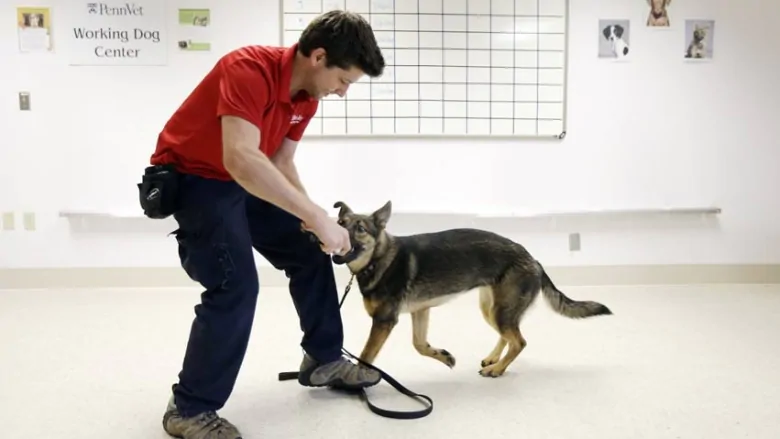We’re answering your questions about the pandemic. Send yours to COVID@cbc.ca and we’ll answer as many as we can. We’ll publish a selection of answers every weekday online, and also put some questions to the experts during The National and on CBC News Network.

We’re answering your questions about the pandemic. Send yours to COVID@cbc.ca, and we’ll answer as many as we can. We’ll publish a selection of answers every weekday online and also put some questions to the experts during The National and on CBC News Network. So far, we’ve received more than 37,000 emails from all corners of the country.
Can dogs be trained to test COVID-19?
Dogs have long been used to help detect diseases, like cancer and Parkinson’s disease, through scent. Richard A. wonders if they can be trained to detect COVID-19.
There’s no definitive answer, but university researchers are studying whether it’s possible.
The veterinary school at the University of Pennsylvania is trying to train dogs to sniff out COVID-19 by detecting low concentrations of volatile organic compounds (VOCs), found in human saliva, blood, urine and on breath.
“The potential impact of these dogs and their capacity to detect COVID-19 could be substantial,” said Dr. Cynthia Otto, director of Penn Vet Working Dog Center in a news release.
“This study will harness the dog’s extraordinary ability to support the nation’s COVID-19 surveillance systems, with the goal of reducing community spread.”
It’s hoped the dogs will help quickly test large groups of people — including asymptomatic carriers of the virus, and especially in environments like office buildings and hospitals.
The centre says the dogs could be ready for preliminary screening of humans as early as July.
No such study has been announced in Canada. But Glenn Ferguson, director of Cancer Dogs — an organization that uses canines to detect cancer — says past successes show how helpful this could be to curb the spread of COVID-19.
“One of the key things about training dogs to detect [COVID-19] is how quickly you can deploy them,” Ferg

